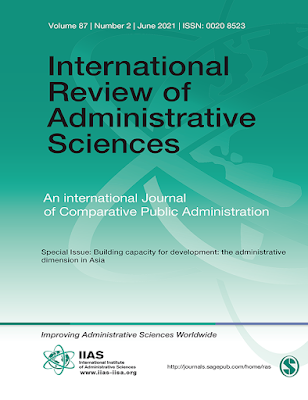What explains geographical representation in the professional staff of intergovernmental organizations (IOs)?
Writing in the International Review of Administrative Sciences, STEFFEN ECKHARD and YVES STEINEBACH address this question from an organizational perspective by considering IO recruitment processes. In the United Nations (UN) system, recruitment processes are designed to ensure bureaucratic merit, with experience and education being the relevant merit criteria, the authors contend in their research article titled ‘Staff recruitment and geographical representation in international organizations’.
“We develop and test a supply-side theory, postulating that differences in countries’ supply of well-educated and highly experienced candidates can explain geographical representation. Drawing on staff data from 34 IOs and supply data from 174 member states, and controlling for endogeneity and alternative explanations, we find no such relationship for education.”
However, countries with a high supply of candidates with relevant working and regional experiences have significantly higher representation values.
These findings offer a complementary narrative as to why some countries are more strongly represented in the international professional staff than others.
Findings also unveil the nature of bureaucratic merit in the UN, which seems to emphasize local knowledge and working experience over formal (Western) education.
Such experience comprises both regional expertise (local knowledge) needed in UN country operations where the bulk of UN personnel work and previous working experience. “It is possible that typical (Western) education systems do not deliver this kind of knowledge, which may be the reason why we observe such a pronounced importance of regional and work experience in the UN,” the authors state.
More precisely, because UN country operations seem to be worried about the impartiality of their staff but still need employees who possess local cultural knowledge, candidates from proximate countries in the region appear to have higher chances of making it into the international professional staff (IPS).
Furthermore, while there is a lot of competition for individual IPS positions, having prior experience in national professional officers or general services staff positions seems to constitute a viable career path option.
“Our findings on the relationship between regional experience and working experience imply that the chances of getting an international staff position are highest when an individual works as national staffer in a region where the UN has a significant regional presence. In such cases, working experience seems to add to the possession of regional experience.”
Writing in the International Review of Administrative Sciences, STEFFEN ECKHARD and YVES STEINEBACH address this question from an organizational perspective by considering IO recruitment processes. In the United Nations (UN) system, recruitment processes are designed to ensure bureaucratic merit, with experience and education being the relevant merit criteria, the authors contend in their research article titled ‘Staff recruitment and geographical representation in international organizations’.
“We develop and test a supply-side theory, postulating that differences in countries’ supply of well-educated and highly experienced candidates can explain geographical representation. Drawing on staff data from 34 IOs and supply data from 174 member states, and controlling for endogeneity and alternative explanations, we find no such relationship for education.”
However, countries with a high supply of candidates with relevant working and regional experiences have significantly higher representation values.
These findings offer a complementary narrative as to why some countries are more strongly represented in the international professional staff than others.
Findings also unveil the nature of bureaucratic merit in the UN, which seems to emphasize local knowledge and working experience over formal (Western) education.
Such experience comprises both regional expertise (local knowledge) needed in UN country operations where the bulk of UN personnel work and previous working experience. “It is possible that typical (Western) education systems do not deliver this kind of knowledge, which may be the reason why we observe such a pronounced importance of regional and work experience in the UN,” the authors state.
More precisely, because UN country operations seem to be worried about the impartiality of their staff but still need employees who possess local cultural knowledge, candidates from proximate countries in the region appear to have higher chances of making it into the international professional staff (IPS).
Furthermore, while there is a lot of competition for individual IPS positions, having prior experience in national professional officers or general services staff positions seems to constitute a viable career path option.
“Our findings on the relationship between regional experience and working experience imply that the chances of getting an international staff position are highest when an individual works as national staffer in a region where the UN has a significant regional presence. In such cases, working experience seems to add to the possession of regional experience.”
Eckhard, Steffen, and Yves Steinebach. “Staff Recruitment and Geographical Representation in International Organizations.” International Review of Administrative Sciences, (July 2021). https://doi.org/10.1177/00208523211031379.





